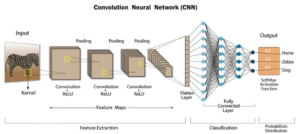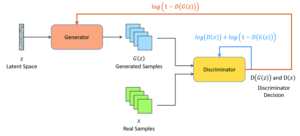Deep Learning has revolutionized various fields, including computer vision, natural language processing, and robotics. If you’re interested in mastering this powerful technology, here’s a comprehensive learning path for you in 2024:
1. Prerequisites:
- Mathematics: Linear algebra, calculus, statistics, and probability theory.
- Programming: Python (NumPy, Pandas), R, or C++.
- Machine Learning: Basic understanding of supervised and unsupervised learning algorithms.
2. Foundations of Deep Learning:
- Artificial Neural Networks (ANNs): Understand the structure and function of ANNs, including neurons, layers, activation functions, and learning algorithms like gradient descent and backpropagation.

- TensorFlow or PyTorch: Familiarize yourself with popular deep learning frameworks like TensorFlow or PyTorch to build and train your models.
- Deep Learning Book by Ian Goodfellow, Yoshua Bengio, and Aaron Courville: This book provides a comprehensive overview of deep learning concepts and algorithms.
3. Core Deep Learning Concepts:
- Convolutional Neural Networks (CNNs): Learn CNNs for image recognition, object detection, and image segmentation. Understand how convolutional layers, pooling layers, and activation functions work together.

- Recurrent Neural Networks (RNNs): Explore RNNs for natural language processing tasks like text classification, machine translation, and text generation. Understand how LSTMs and GRUs handle sequential data.

- Generative Adversarial Networks (GANs): Learn how GANs work to generate realistic images, music, and other creative content.
4. Deep Learning Applications:
- Computer Vision: Apply CNNs to real-world applications like object detection in self-driving cars, medical image analysis, and facial recognition.
- Natural Language Processing: Utilize RNNs and Transformers for machine translation, sentiment analysis, chatbot development, and text summarization.
- Reinforcement Learning: Combine deep learning with reinforcement learning algorithms to train agents for complex tasks like game playing and robot control.
5. Advanced Deep Learning Topics:
- Explainable AI (XAI): Understand how deep learning models make decisions and increase transparency and trust in these models.
- Federated Learning: Train deep learning models on distributed data without compromising privacy.
- Neuromorphic Computing: Explore hardware designed specifically for deep learning algorithms.
6. Resources and Tools:
- Online Courses: Coursera, edX, Udemy, Udacity
- Tutorials and Blogs: TensorFlow Tutorials, PyTorch Tutorials, DeepMind Blog, Google AI Blog
- Datasets: ImageNet, MNIST, CIFAR10, Stanford Natural Language Processing Group
- Competitions: Kaggle, DrivenData
7. Tips for Success:
- Practice consistently: Work on real-world projects and participate in competitions to apply your knowledge.
- Join the community: Connect with other deep learning enthusiasts online and offline for support and collaboration.
- Stay updated: Keep yourself updated on the latest advancements in the field through research papers and blogs.
8. Conclusion:
Learning deep learning requires dedication and continuous effort. However, with the right resources, approach, and passion, you can unlock the power of this transformative technology and contribute to exciting advancements in various fields.

